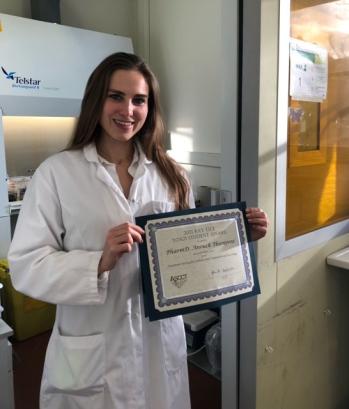
The ASCCT is a scientific society dedicated to the promotion of toxicology testing and research that reduces and replaces the use of animals. During their 10th annual meeting, different topics related to the practical application of new tools in toxicology were presented and the 21st-Century Challenges for toxicity testing were discussed. There was a focus on Omics, Artificial Intelligence, other New Approaches and how to validate them. In the session “practical applications of –omics”, Anouck presented her research on the development of a new prediction model for genotoxicity in human HepaRGTM cells. This prediction model allows to predict the genotoxic potential of chemicals based on the changes in the expression of 84 carefully selected genes. The work is part of a joint PhD project between VUB and Sciensano, funded by the FWO and the Chair Mireille Aerens, and is one of the topics covered in the training courses under the Horizon 2020 project TWINALT.
The Tox21 Student award has been established by Dr. Ray Tice, a leader in the development and use of high-throughput test methods and other alternatives. The award consists of $500 cash to assist with travel and/or research expenses. Receiving the award is a recognition that the performed work is of high importance for the current shift in toxicology testing from a primarily observational, whole animal-based science towards a more predictive and mode-of-action-focused discipline.
